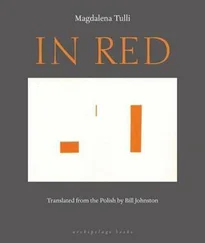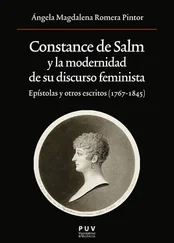Magdalena Tulli - Flaw
Здесь есть возможность читать онлайн «Magdalena Tulli - Flaw» весь текст электронной книги совершенно бесплатно (целиком полную версию без сокращений). В некоторых случаях можно слушать аудио, скачать через торрент в формате fb2 и присутствует краткое содержание. Год выпуска: 2007, Издательство: Archipelago Books, Жанр: Современная проза, на английском языке. Описание произведения, (предисловие) а так же отзывы посетителей доступны на портале библиотеки ЛибКат.
- Название:Flaw
- Автор:
- Издательство:Archipelago Books
- Жанр:
- Год:2007
- ISBN:нет данных
- Рейтинг книги:5 / 5. Голосов: 1
-
Избранное:Добавить в избранное
- Отзывы:
-
Ваша оценка:
- 100
- 1
- 2
- 3
- 4
- 5
Flaw: краткое содержание, описание и аннотация
Предлагаем к чтению аннотацию, описание, краткое содержание или предисловие (зависит от того, что написал сам автор книги «Flaw»). Если вы не нашли необходимую информацию о книге — напишите в комментариях, мы постараемся отыскать её.
Flaw — читать онлайн бесплатно полную книгу (весь текст) целиком
Ниже представлен текст книги, разбитый по страницам. Система сохранения места последней прочитанной страницы, позволяет с удобством читать онлайн бесплатно книгу «Flaw», без необходимости каждый раз заново искать на чём Вы остановились. Поставьте закладку, и сможете в любой момент перейти на страницу, на которой закончили чтение.
Интервал:
Закладка:
The waiter, a figure of the most beggarly cut, is of too little significance here to be able to make amends for the indignity he has caused the commander — the regrettable moment when he left him in his stockinged feet in front of an insolent derisive rabble. And because of this, the long-awaited lunch with the officers went unappreciated. The admiring and grateful question of where the waiter had obtained the pork knuckle, and how he had miraculously been able to marinate it and roast it, would never be uttered. If anything at all here could be made right, it would only happen if the waiter were forced to take all of the mockery upon himself, to be submerged in it, to sink in ridicule without mercy and without end. When the boots are finally brought, then, the commander will grab them by the uppers and for a long time will assail this figure, who in his consternation will be lisping even more than usual, until the offense is washed away in blood. It will drip from a cut over the eye onto the black tailcoat and the white shirt front. The airmen pretend they are involved in their game of billiards, their backs turned, rather than watch this scene, which reminds them only too much of the barracks. The balls click against one another unconvincingly and miss the pockets. A word of gratitude will be found for the commander, but not until he is pulling on the boots, for only then will they sense it’s finally over, and breathe a sigh of relief. Their thanks will sound rather offhand considering the care with which they have been treated, the cordial hospitality and the astonishing lavishness of the meal. The reserve with which the airmen shake hands with the commander is especially painful to him, though on the other hand he understands that he ought not to bear a grudge.
Alas, nothing has gone as planned, and it’s no surprise he has grown solemn. With one more longing glance into the cloakroom, at the gold-trimmed greatcoat which would have been so much more effective than his own jacket in setting the tone of his relations with the world, the leader of the guard sets out on his business, not noticing that his boots still smell. Only one course of action remained to him, one last resort: he must now gather his subordinates, line them up, and call to account the first one at hand. Returning from their homes, the guardsmen assembled in the school yard. Given soup and chops by their mothers, they had no excuses. All the more so because after lunch barely half of them had returned to their unit. What had happened to the rest? Had their mothers kept them at home and made them do their homework? If they started doing what their mothers said, the whole lot of them would end up deserting. That was what he was afraid of. For the moment, though, they stood in a shortened but orderly double line in the grammar school yard, while he stormed back and forth in front of them, furious at those he could no longer reach. The longer he raged, the angrier he became. As he screamed till he was out of breath, meaningful pauses came of their own accord. In this way it cost no effort whatsoever to imitate the harsh tone of the radio broadcast. But the cadences of his speech were drowned out by dance music. Fox-trots could be heard coming from the café, where the gramophone with its big trumpet had been turned up to full volume.
By early afternoon someone had already picked up the chalk-and-plaster fragments left after the incident that some time ago had interrupted the distribution of the rolls, and had put them to use. The first scrawl to deface the walls had appeared on the façade of the cinema. It was a question mark with a provocatively curving belly, devoid of any context whatsoever. Since no one knew what it referred to specifically, it brought everything without exception into question, including the lace curtains in the windows, the ornamental railings, the widely accepted principle that one’s fingernails ought to be clean, and the dignity of the life being led all around. Through its suggestiveness, the question mark became vulgar and offensive in and of itself. The guards were ordered to scratch it out, making use of their unlimited access to school supplies of chalk. From that moment, for a long while they were kept busy, because question marks kept popping up here, there, and everywhere. Yet no one was caught red-handed. At least four such marks blighted the front of the government offices alone, one standing out mockingly beneath the damaged emblem. Two could be seen at number seven, a larger one and a smaller one, joined together in a single visibly obscene figure. The orphanage children, who were sticking their noses into everything, may well have preferred to write plainly and simply that, for example, here at number seven a young lady went with a young man. But that would have taken too many letters. A question mark is the easiest thing to scribble in haste, when the writer is all set to scram at a moment’s notice. Exposed to the public view, it immediately takes on a shared meaning that is allusive in the most general sense. The guards ran from place to place, smudged in chalk from head to foot, till the last question mark had vanished, and all the buildings around the square were covered near ground level with a rash of expressive blotches that would never let anyone forget that here anything could be called into question.
In the meantime the orphanage children were already busy with something else. Seizing the opportunity, they were prowling the unwatched courtyards while the concierges were minding the front of their buildings. In threes and fours, they hurriedly emptied the trash cans they found there. Up to their knees in the contents, they sought remnants of food. They picked out kitchen scraps and stuffed themselves. The things they ate upset their stomachs, and soon they were dirtying entrance-ways, landings, and anyplace they happened to be. It was as if they were deliberately provoking the residents, especially those in the buildings overlooking the street, who, according to the universally respected order of things, had the right to give a wide berth to all that was revolting, including by-products of the pure elixir of their life. To see excrement at every step was a true plague, compared with which the isolated incident involving the drifting smell and the ochre smear on the sidewalk was a matter of no consequence.
But if I am one of the residents watching from behind a lace curtain, I realize that the problems did not begin with the children from the orphanage, nor do they end with them. The very presence of the newcomers living right there on the street is already scandalous to me. It’s hard to remain calm as one watches them settle on their suitcases, each of them arranging a small area of the square with their own belongings. One is snoring as he sits and dozes; another has taken off his shoe and sock and is examining his blisters. The body stinks — this truth too must finally be uttered. Its dirty nature cannot be kept under control with continuous hygienic procedures involving hot water, soap, brushes large and small, handkerchiefs, nail files, jars of vaseline, and bottles of scent. All of this takes up a great deal of space. There is a need for closets, shelves, and cabinets. Thus the body, deprived not only of a roof over its head but also of everything else, cannot expect sympathy, but on the contrary it must become an offense against decorum, the disgrace of the neat and respectable community of residents. Then what on earth are they to say when, casually multiplied by the hundreds, the body swells into a crowd. If, then, I am any one of the residents, I feel sorry only for the concierge who is tugging the policeman’s sleeve to complain about the disorder.
The clerks from the government offices maintained that since it was not possible to get rid of the refugees at once, temporary solutions needed to be found. For example, the construction of latrines. The concierges ought to help out in this endeavor, since they too would make use of them. The concierges preferred to lend their spades to the provisional authorities, who could have the refugees do the digging themselves. The only problem was that no one could agree on where the pit should be dug. The one place that everyone thought of was the flower bed in the middle of the square, which may already have been doomed to destruction; it had probably been trampled long ago, plowed up by heels and flattened under suitcases. But the commander merely waved his hand dismissively. In his view there was no point in wasting resources. Instead of turning the flower bed into a latrine, it would be better to spare it and plant new flowers once the situation was normalized. The refugees are forbidden from entering the courtyards, and there is no point in revoking this order without good reason. A state of affairs as perturbing as the present one is by its nature transitory, and so as the commander sees it, things will soon resolve themselves even without a latrine. The policeman, buttonholed by proponents of both solutions, has no intention of taking sides. He listens indifferently to the concierges’ complaints and the residents’ advice, merely nodding his head at the order guard’s loss of face.
Читать дальшеИнтервал:
Закладка:
Похожие книги на «Flaw»
Представляем Вашему вниманию похожие книги на «Flaw» списком для выбора. Мы отобрали схожую по названию и смыслу литературу в надежде предоставить читателям больше вариантов отыскать новые, интересные, ещё непрочитанные произведения.
Обсуждение, отзывы о книге «Flaw» и просто собственные мнения читателей. Оставьте ваши комментарии, напишите, что Вы думаете о произведении, его смысле или главных героях. Укажите что конкретно понравилось, а что нет, и почему Вы так считаете.












